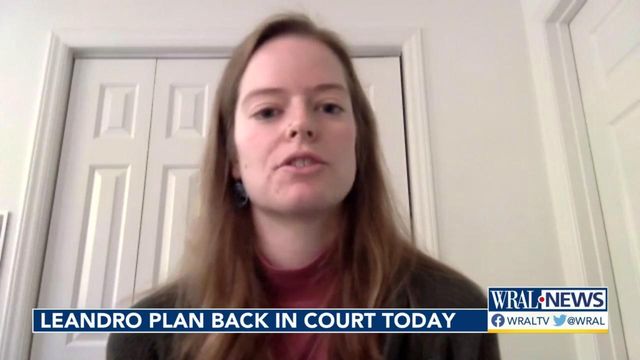State due in court to respond to $1.7B education funding proposal
In September, attorneys for the state asked Lee to give lawmakers more time to come up with a budget, though neither Legislative chamber has proposed a budget that would fund the entirety of the $1.7 billion required.
Posted — UpdatedThe state officials — typically the State Board of Education the Department of Public Instruction — must submit a written response in Wake County Superior Court by the end of Monday. A court hearing Wednesday will address both the proposal and response.
In September, attorneys for the state asked Judge David Lee to give lawmakers more time to come up with a budget, though neither Legislative chamber has proposed a budget that would fund the entirety of the $1.7 billion required in a court-ordered plan for this year and next year (considered the second and third year of the plan).
The filings and the hearing are part of the 27-year-old “Leandro” education funding lawsuit, which has resulted in courts ordering the state to more robustly and equitably fund schools.
The proposal to transfer $1.7 billion toward funding schools comes from all plaintiffs and plaintiff intervenors. That includes school boards in and students enrolled in the low-wealth Cumberland, Halifax, Hoke, Robeson and Vance county school districts (who originally sued), families in Charlotte-Mecklenberg Schools known as the “Penn Intervenors,” and Charlotte-Mecklenberg Schools. Charlotte-Mecklenberg Schools is also a "realigned defendant" in the case because the Penn Intervenors had alleged the district had also fallen short of its education obligations.
Some changes to school funding formulas, including new categories of funding for lower-wealth schools and economically disadvantaged students, have been made since the lawsuit was filed in 1994. But court orders since those changes have been made did not find that they ere sufficient, including one written by the original judge in the case, Howard Manning, in 2015.
In that order, Manning wrote, “in way too many school districts across the state, thousands of children in the public schools have failed to obtain and are not now obtaining a sound basic education as defined and required by the Leandro decision.”
By law, the state is supposed to fund education, while counties fund facilities. But many counties are using local funds to pay for education funds they say they need from the state but aren’t getting.
The state would have 30 days to make this happen, the proposal reads.
That money includes $1.5 billion to the North Carolina Department of Public Instruction, $189.8 million to the North Carolina Department of Health and Human Services and $41.3 million to the University of North Carolina System.
They additionally cite a 1940 North Carolina Supreme Court ruling, in State v. Harris, that said courts’ authority to reign in a Legislature that has ‘inadvertently’ exceeded its limitations is just as necessary as the Legislatures’ own adherence to the Constitution.
The Penn Intervenors note the state has been found at fault for not complying with the Constitution already. The Legislature is “thumbing its nose at the courts and suggesting that the only way that this Court can change the outcome is to run for office, join the General Assembly, and vote for appropriations,” they wrote. That notion disregards the state Constitution and in effect “denies North Carolina school children the ‘remedy by due course of law.’”
They continued, “Undoubtedly, such precedent would set in force a series of actions by the General Assembly to hide behind the cover of a single clause in the constitution.”
The North Carolina Supreme Court has on multiple occasions held county board’s financially liable in local education disputes, the Penn Intervenors wrote.
Related Topics
• Credits
Copyright 2024 by Capitol Broadcasting Company. All rights reserved. This material may not be published, broadcast, rewritten or redistributed.






